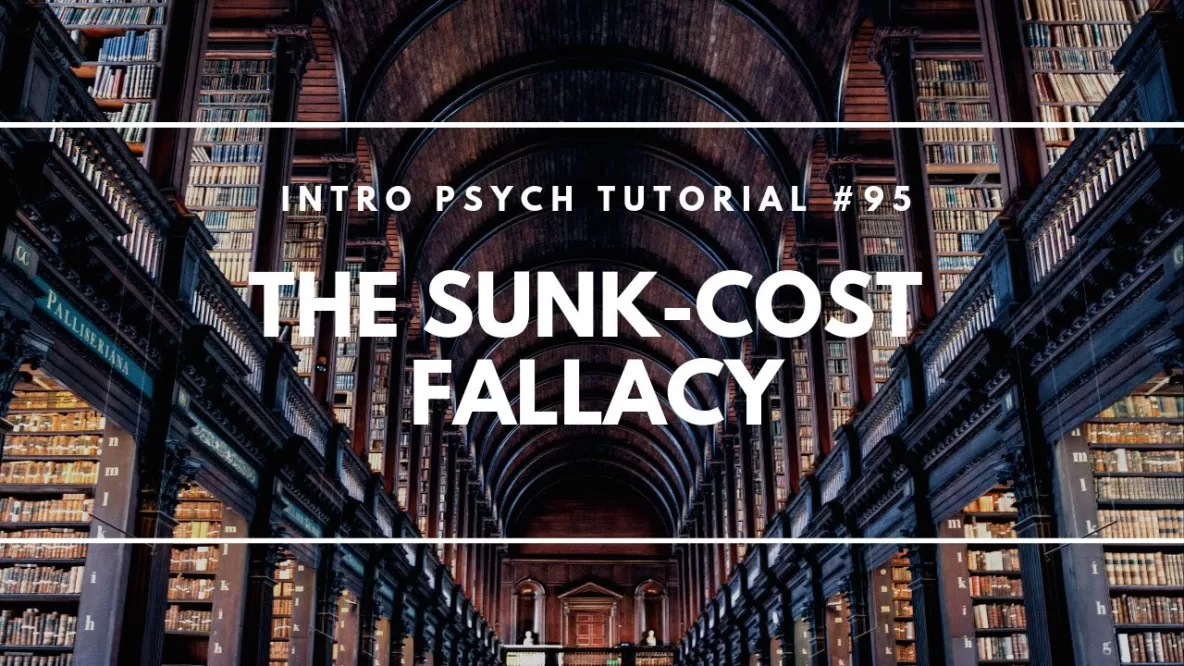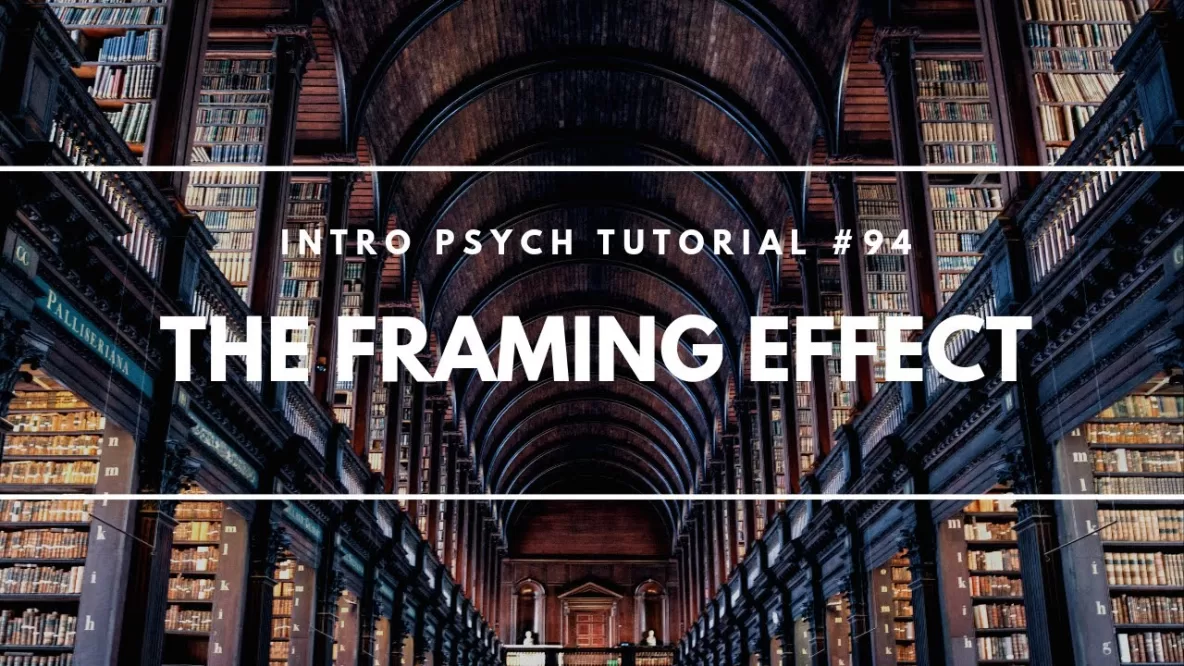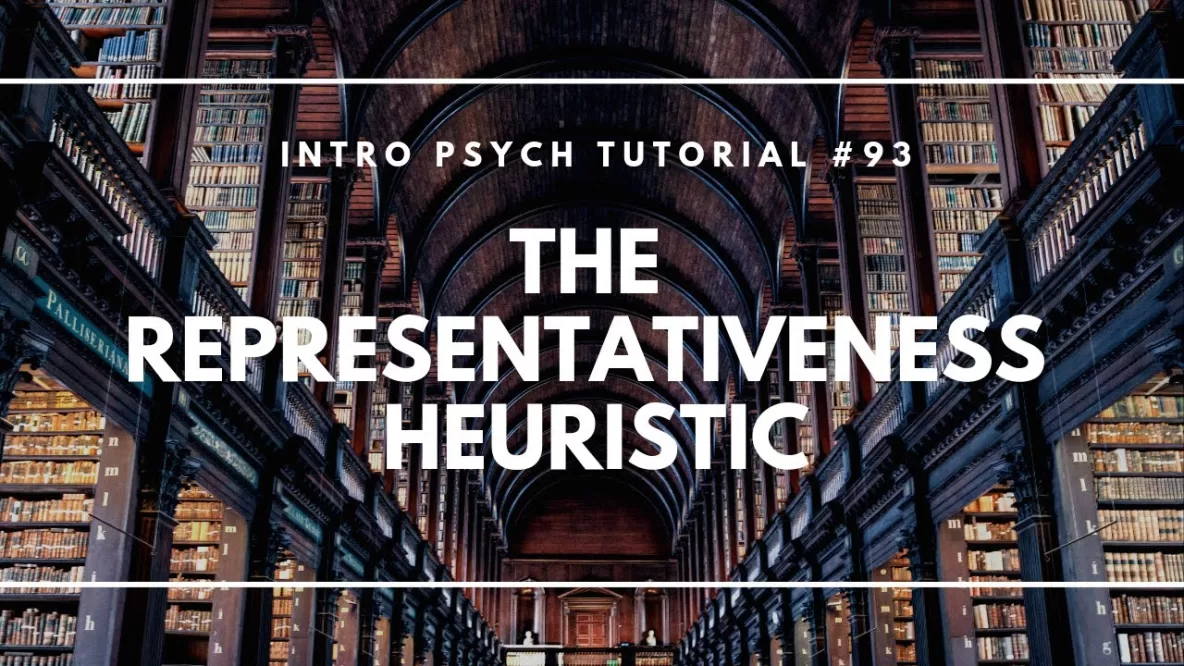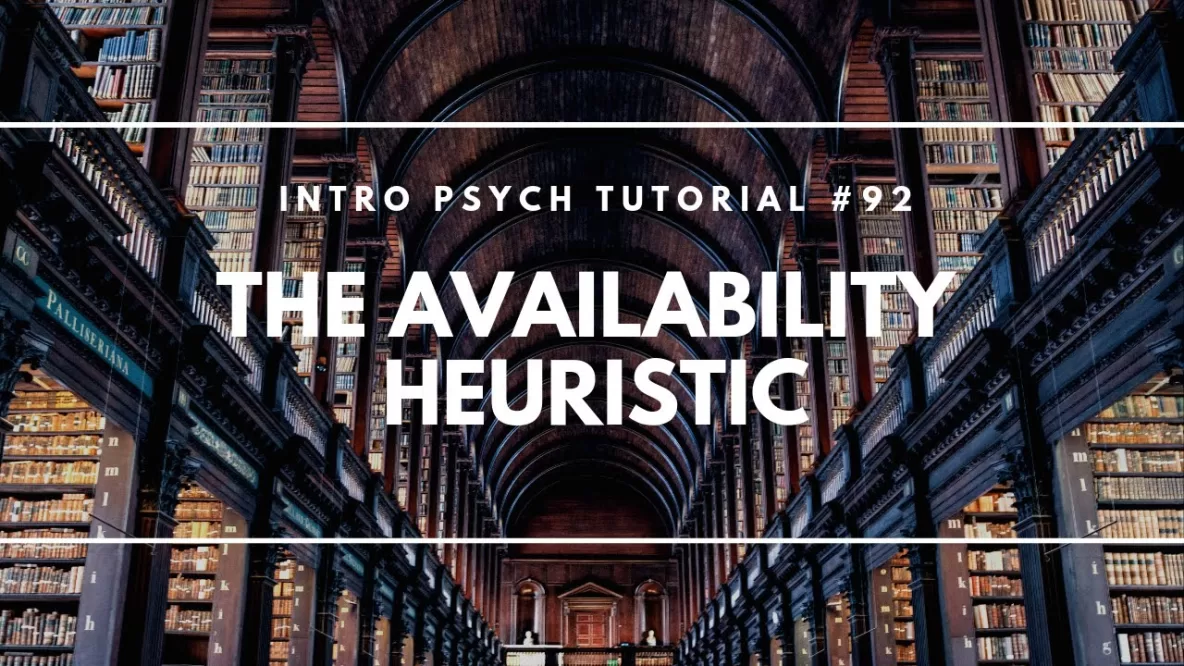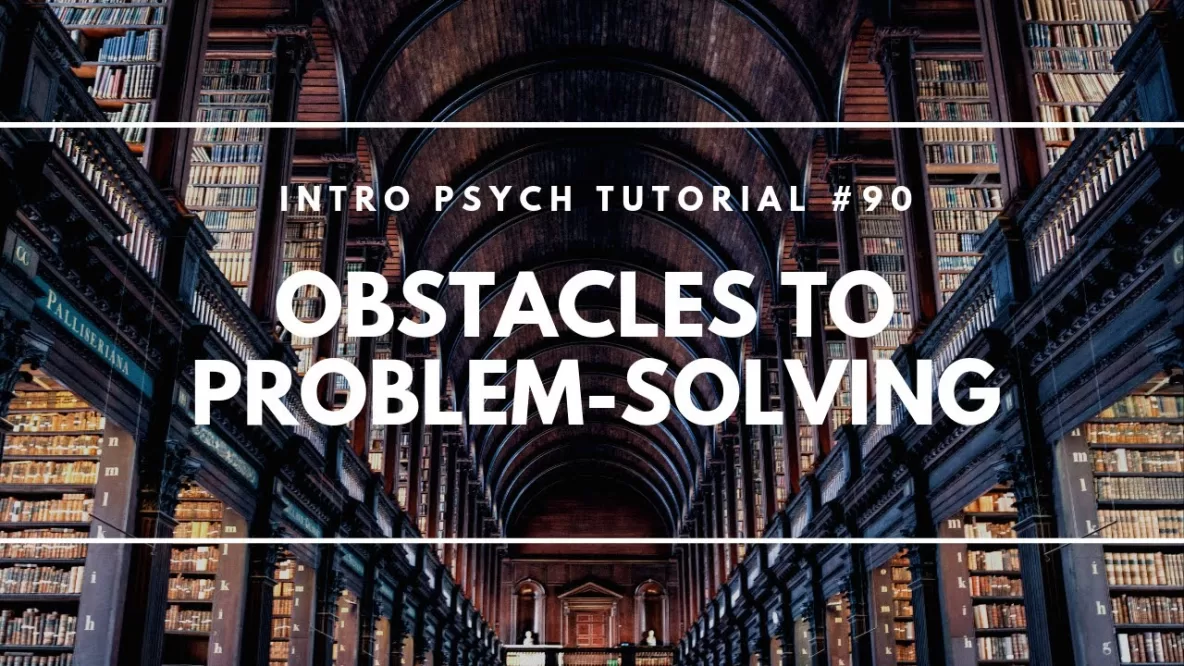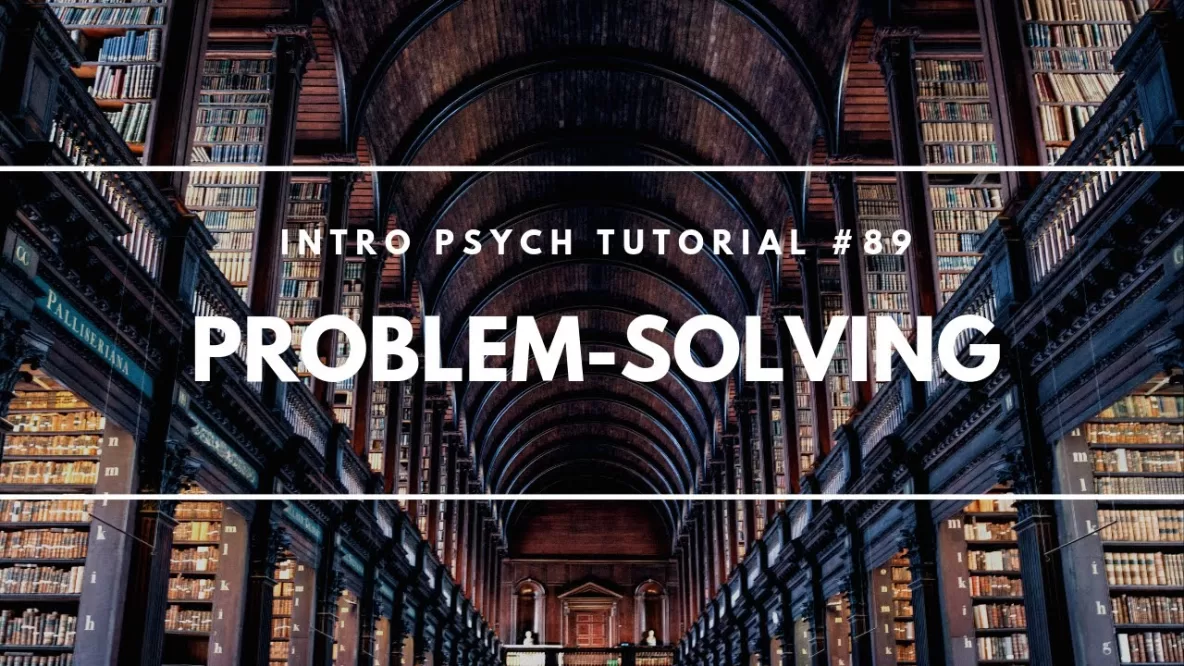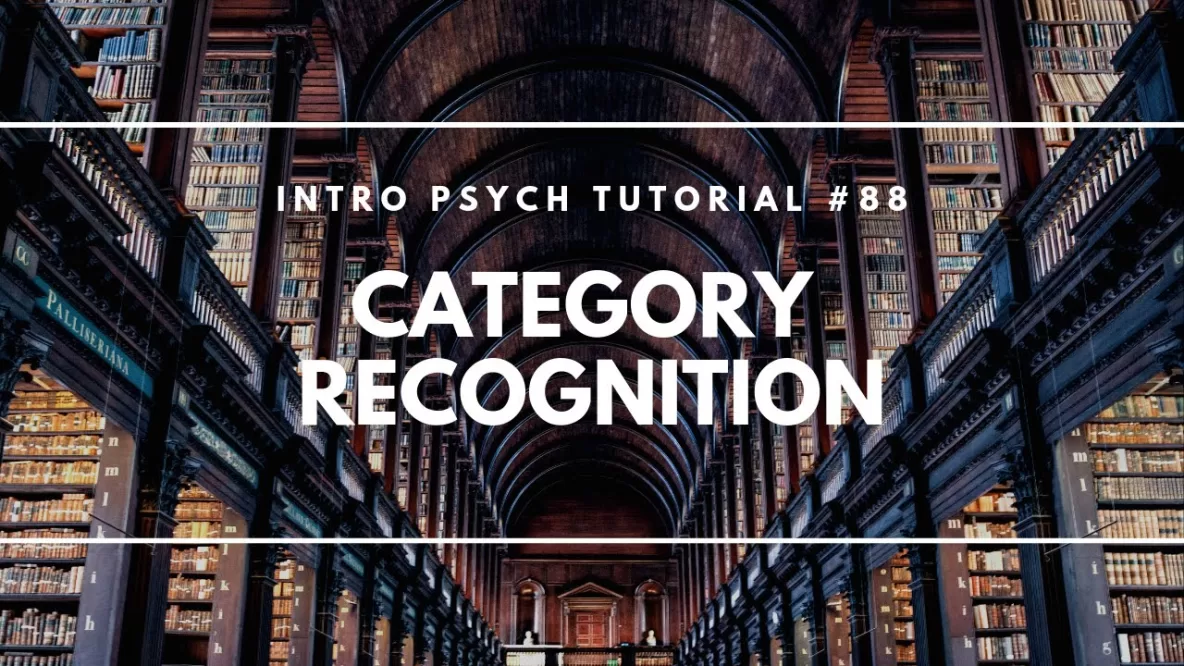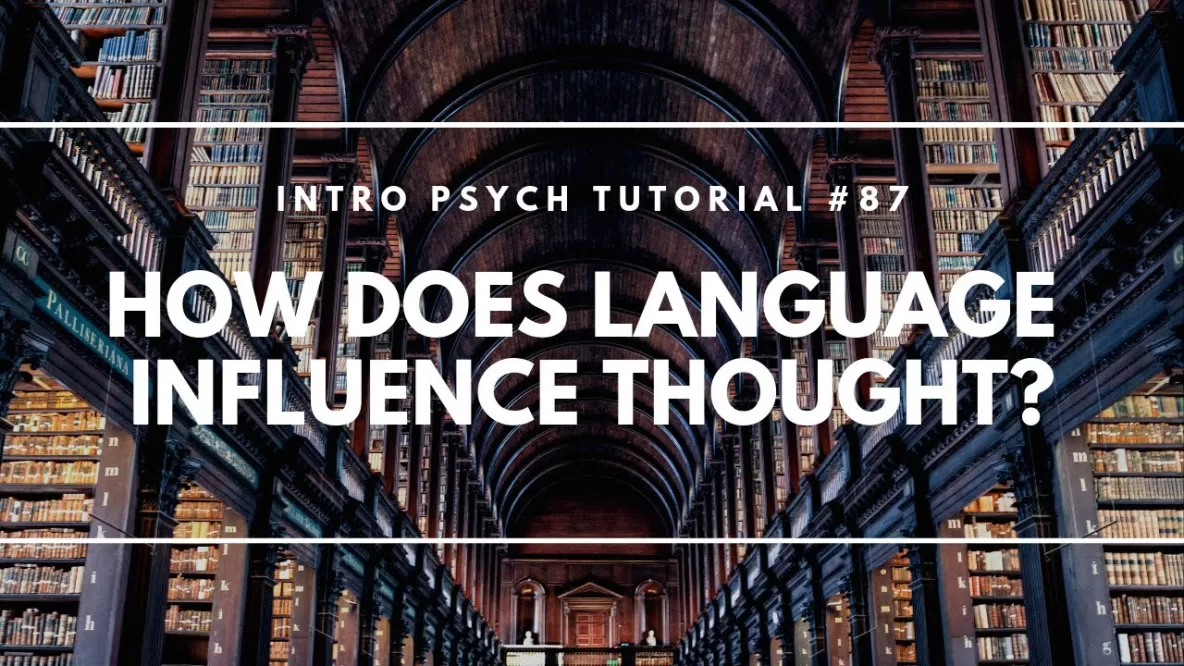Here’s a knowledge organizer I’ve created of the most essential concepts for language & cognition in an introductory psychology course. These knowledge organizers are designed to help you identify the most important factual knowledge you need to have in order to engage in the more challenging activities of discussing, writing … Read More
Benefits of Heuristics
In this video I end the unit on cognition with the reminder that heuristics are not just about making errors in decision-making. Most of the time heuristics work well and they serve as useful tools for making sense of the world and being able to make decisions with limited information. … Read More
The Sunk-Cost Fallacy
In this video I introduce the sunk-cost fallacy, which is when we make present decisions based on previous investments which aren’t relevant. This fallacy can occur in the form of gamblers or investors who make increasingly risky decisions in order to make up for past losses. Tversky and Kahneman have … Read More
The Framing Effect
In this video I introduce Tversky and Kahneman’s work on the framing effect and how consideration of benefits or losses can influence the choices that people make and their willingness to take risks. I consider a few everyday examples of this, then consider how the framing of default options may … Read More
The Representativeness Heuristic
In this video I describe another heuristic identified by the work of Amos Tversky and Daniel Kahneman. The representativeness heuristic is a shortcut that we use when attempting to estimate the odds of something being true, such as whether an interview profile came from a lawyer or an engineer. Rather … Read More
The Availability Heuristic
In this video I provide an introduction to behavioral economics and the work of Amos Tversky and Daniel Kahneman by describing a heuristic we use when attempting to assess the frequency of events. The availability heuristic is a shortcut that estimates frequency based on how available an event is to … Read More
Obstacles to Problem Solving
In this video I introduce several potential obstacles to problem-solving including overconfidence, illusory superiority, belief bias, and belief perseverance. Then I describe a “consider the opposite” strategy for potentially reducing the influence of bias when interpreting evidence that supports or contradicts our pre-existing beliefs. Don’t forget to subscribe to the … Read More
Problem Solving
In this video I introduce several concepts related to problem-solving. I begin with mental set, which refers to our tendency to rely on approaches that have worked in the past. Similarly, functional fixedness refers to our tendency to think of tools as having single fixed uses and this may cause … Read More
Category Recognition
In this video I consider how language can help us to organize thought and create more precise concepts and categories. This raises the question of how we recognize new stimuli as being part of a particular category. Protoype theory suggests that we mentally compare new stimuli to a prototype or … Read More
How Does Language Influence Thought?
In this video I consider the relationship between language and thought. The Whorf-Sapir hypothesis, or linguistic relativity hypothesis, suggests that one’s language influences one’s perception of the world. While evidence is mixed on just how language influences thought, there are other ways of examining the complex relationship between language, thought, … Read More
- Page 1 of 2
- 1
- 2



